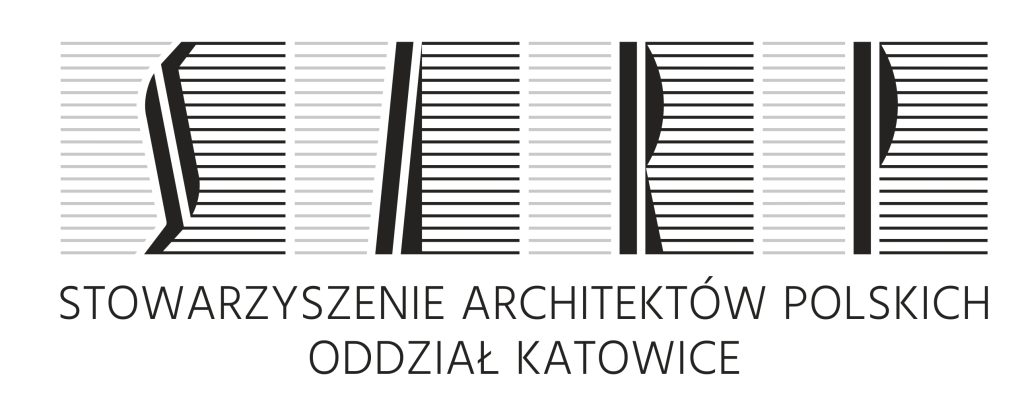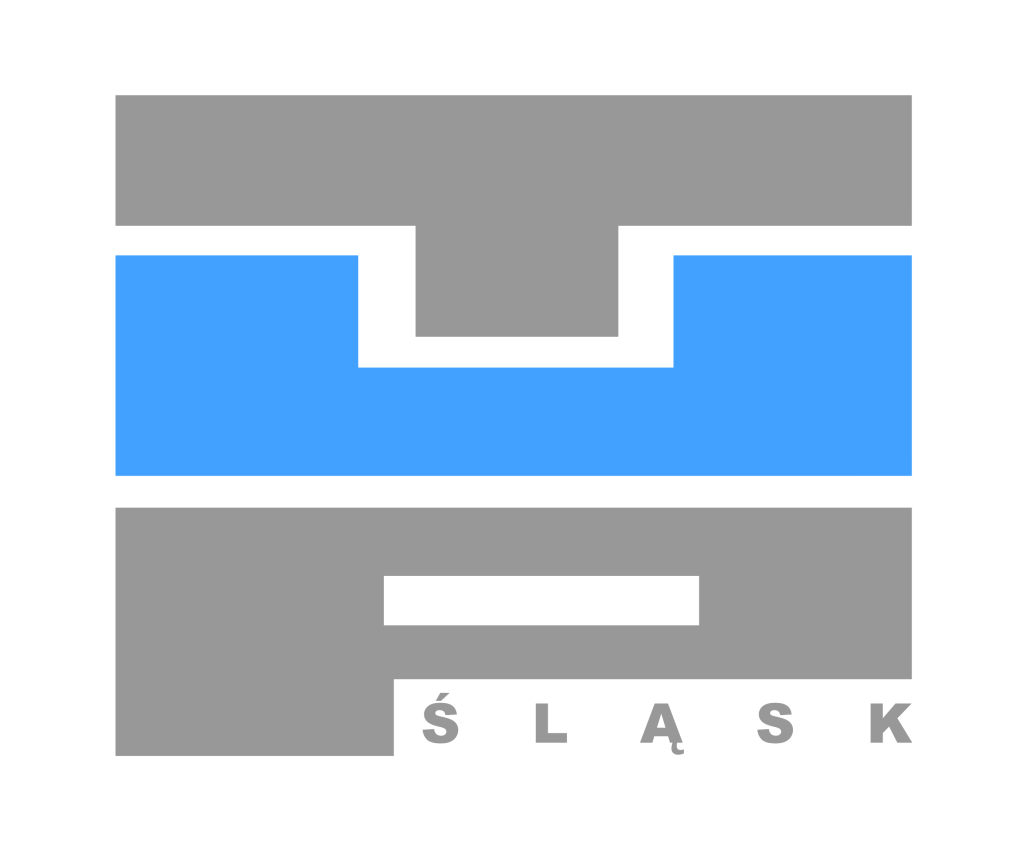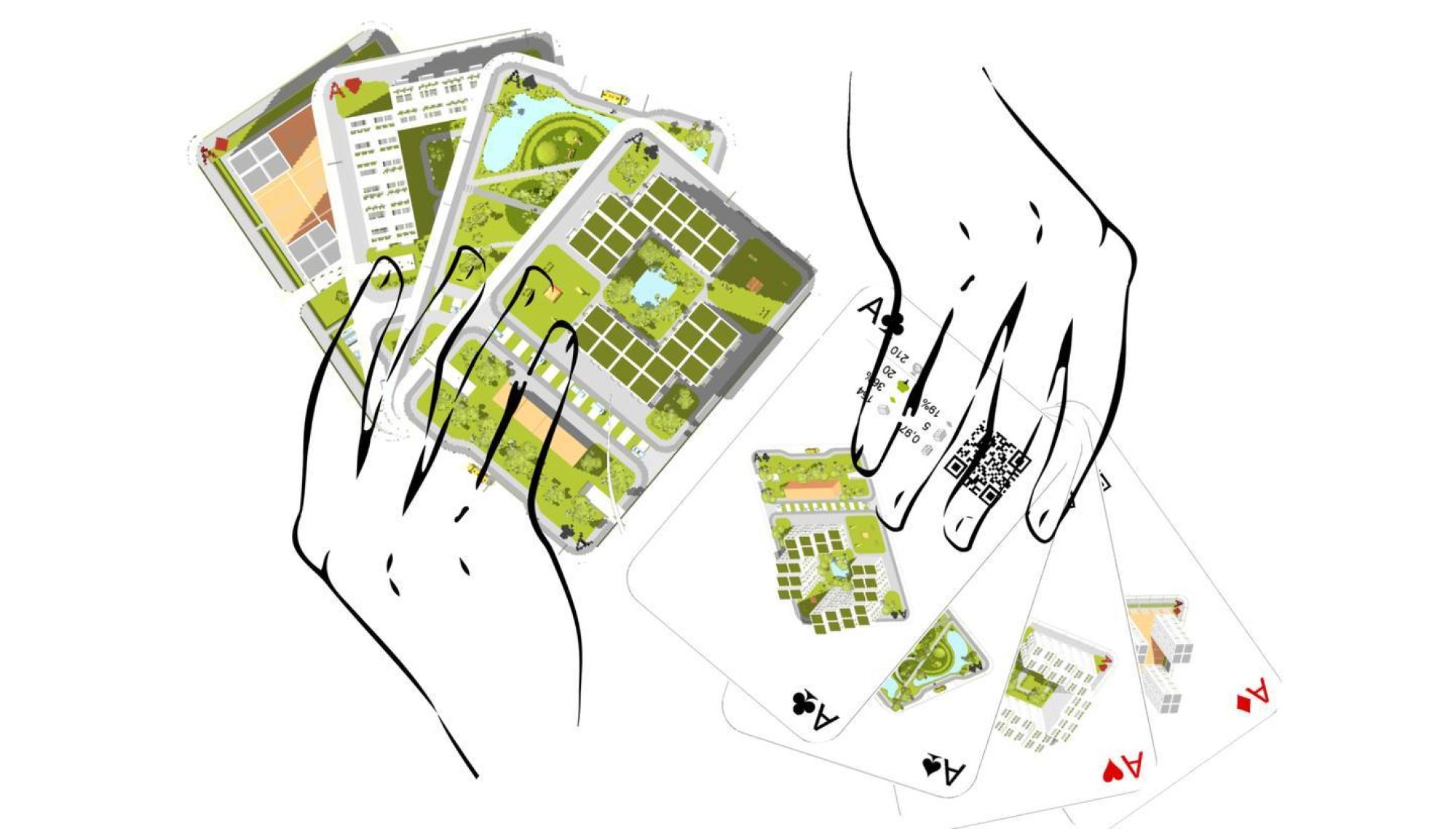Reviews and recommendations about the game:

SARP Katowice branch – Association of Polish Architects Katowice branch – honorary patronage

THE COMMITTEE ON ARCHITECTURE AND URBANISM OF THE POLISH ACADEMY OF SCIENCES DEPARTMENT IN KATOWICE – recommendation for a scientific and didactic game

Society of Polish Town Planners Silesia Branch
_______________________________________________________________
Comments about the game
The Housing Estate Game aims to draw attention to the issues of intensification of housing development and the shaping of settlement spaces. To this end, a theoretical approach is used, which draws on didactic and popularization activities.
The game gives you the opportunity to put together models, create different types of settlements of the future from them, visualize them with a click on your own phone and find opportunities as well as threats from our created layout. The goal of the game is to build a mini-housing estate with the best possible parameters. In addition, the cards can be used for any card game like macau, poker, war!
APA Wojciechowski Architekci
_______________________________________________________________
“The ‘Housing Estate Game’ created by a team led by dr inż. arch. Tomasz Bradecki is an excellent and interesting, tool, which not only tames the issues of architecture, urban planning and supporting biodiversity, but successfully initiates a conversation about the role of sustainable construction, not only in urban areas. A high quality urban fabric, created on the basis of respect for the environment and supporting the well-being of people, is the key to creating active and resilient local communities – and it is people in architecture, after all, that matter most.
Magdalena Wojtas
Sustainable Development Menager
_______________________________________________________________
Playing cards may seemingly be associated with gambling. It is sometimes a game of fun. But it doesn’t always have to be that way. Playing cards can teach. Estate games can educate not only students, but can also be useful for developers. They can help in recognizing good criteria and evaluating a good living space.
It is useful to have strong cards in hand. In this case, strong arguments. It is arguments that determine the quality of architecture and can build a good or bad space.
Przemo Łukasik
Architekt, co-owner of Medusa Group
_______________________________________________________________
After reading “The Housing Estate Game,” I believe that it is a missing element in the education system of young architects. For it draws attention to the fact that spatial, aesthetic and purely architectural aspects, although important, are not the only factors in shaping our cities and settlements. And the architect is not the demiurge deciding everything, but must take into account the other players in the game: the authority, the developer, the investor, the planner or, finally, the user. Big potential!
Szymon Wojciechowski
APA Wojciechowski Architekci, Prezes Zarządu, Współwłaściciel, Architekt – Partner
_______________________________________________________________
I very much appreciate the idea of the “Estate Game.” It has a good chance to become both good entertainment and a great tool for architectural and urban planning education involving not only future designers – professionals, but also investors, officials, politicians and all users of designed residential spaces.
Oskar Grąbczewski, OVO Grąbczewscy Architekci
_______________________________________________________________
The housing estate game is a great idea that can serve not only for fun but also for architectural education. For years I have been wondering what to do to raise awareness of all participants in planning and investment processes. This game is the answer – it can really bring tangible results: educate young and old and support the educational processes of students in various fields of study related to architecture, urban planning and spatial management. Showing the many complex interrelationships between various planning decisions and actors on the urban scene in such an impressive yet accessible way is admirable.
Prof. Dr. Eng. arch. Krystyna Solarek , Associate Dean for Science and Development, Faculty of Architecture, Warsaw University of Technology, Chair of the Scientific Council of the Architecture and Urban Planning Discipline, Head of the Department of Urban Planning and Spatial Management
_______________________________________________________________
Urban indicators are abstract values for most people. Thanks to the HOUSING ESTATE GAME cards, in this combination of mathematical notation and three-dimensional visualization of solids, there is a chance to make the numerical values contained in urban indicators at least a little closer to a wider audience. For this educational and popularizing activity, I thank the creators of the game.
dr hab. inż arch. Justyna Martyniuk-Pęczek, Prof. PG
Gdansk University of Technology, Faculty of Architecture, Department of Urban and Regional Planning
—————————————————————————————-
The idea of promoting knowledge of the city and its logic of future transformation through a game (of cards) is certainly original and therefore interesting. Learning by playing or playing while learning is a method that also allows non-experts to approach urban planning and envision a better city.
Prof. Arch. Enrico Prandi, PhD
Associate Professor in Architectural and Urban Design
Department of Engineering and Architecture, University of Parma, Italy
Director of FAM.
_______________________________________________________________
In order to change the quality of our housing environment, we need male and female citizens who understand space!
And what better way to educate than to play? The housing estate game will do a great job of helping to build spatial awareness among young people, but also for professional discussions in multidisciplinary groups when the meaning of urban indicators needs to be quickly explained.
dr. hab. inż. arch. Agata Twardoch prof. PŚ
_______________________________________________________________
Johan Huizinga reminds us that humankind is always Homo Ludens and as such, from childhood onwards, learns by playing. Having transformed this primary instinct into a game to educate the student of architecture and urban planning to familiarize him/herself with the notions related to the way in which humans settle a territory is a brilliant idea.
To make the transmissibility of such concepts as building density, land occupation index, settlement types even more effective, it is suggested to adapt and use the cards for a board game like Monopoly.
Prof. Arch. Lamberto Amistadi
Associate Professor in architectural and urban Design
Department of Architecture ALMA MATER STUDIORUM University of Bologna
_______________________________________________________________
“As a teacher of urbanism, I recognise in this game – HOUSING ESTATE GAME – an enormous potential to explain and teach concepts related to urban practice, which are always hard for students to understand. The game fully meets the objectives proposed for its creation.”
Maria Manuela da Fonte, Ach, PHD
Lisbon School of Architecture of Universidade de Lisboa | Arquitecta / Professora Auxiliar / Assistant Professor | Director of the Urbanism Project Department | Faculdade de Arquitetura/Lisbon School of Architecture, Universidade de Lisboa | Investigadora / Researcher URBinLAB | CIAUD
_______________________________________________________________
Housing estate game is an interesting and useful tool, which helps people of different professions and aspirations that, through the play, comprehend important urban processes and elements, and better understand values of city spaces.
Prof. Dr Darko Reba
Department of Architecture and Urban Planning, Faculty of Technical Sciences in Novi Sad, University of Novi Sad.
_______________________________________________________________
Inclusive urbanism must be encouraged by engaging end-users in the design process, and to do so, the tools of such engagements need to have the ability to establish a dialogue of negotiation among stakeholders. The Housinggate project is one of the few which looks at the opportunities to utilize advanced 3D visualization tools for meaningful stakeholders’ active design engagements. The developed hybrid mode of engagement strategies and applications will ensure the affiliation of the participants in their future housing neighborhoods. I want to explore the opportunities of the tool with real-life scenarios in the US.
Dr Shuva Chowdhury
Assistant Professor | Civil, Architectural, and Environ. Eng | North Carolina A & T State University | USA
Ph.D. (VUW Aotearoa New Zealand)
_______________________________________________________________
In our education at the Department of Urban Planning and Design, BME, Budapest, we have been experimenting with various gamification tools in teaching urban design. We also tried some of the urban card games, and based on those experiments, I see the project of HOUSING ESTATE GAME promising, which has very much raised my interest. As soon as it is published, I would like to have one for our department!
Associate Professor SZABÓ Árpád DLA
BME Budapest University of Technology/ Urbanisztika Tanszék / Department of Urban Planning and Design
tanszékvezető / head of the department
egyetemi docens / associate professor
építész, vezető tervező /architect
_______________________________________________________________
This book and application connects successfully, design, planning, teaching and research, by using traditional gaming technologies, blended with virtual worlds, in order to visualize in 3D the future form of the sustainable city
Assoc. Prof. Alessandro Camiz PhD
Director, Dynamic Research on Urban Morphology-DRUM laboratory
Özyeğin University, Faculty of Architecture and Design
Department of Architecture
The housingestate game is one of the few proposals that, thanks to its attractive form based on Augmented Reality, can compete with products of the rapidly growing game market, while introducing content relevant to spatial education.
dr hab. inż. arch. Patrycja Haupt, prof. of PK
Department of Residential Environment DesignFaculty of Architecture, Cracow University of Technology
